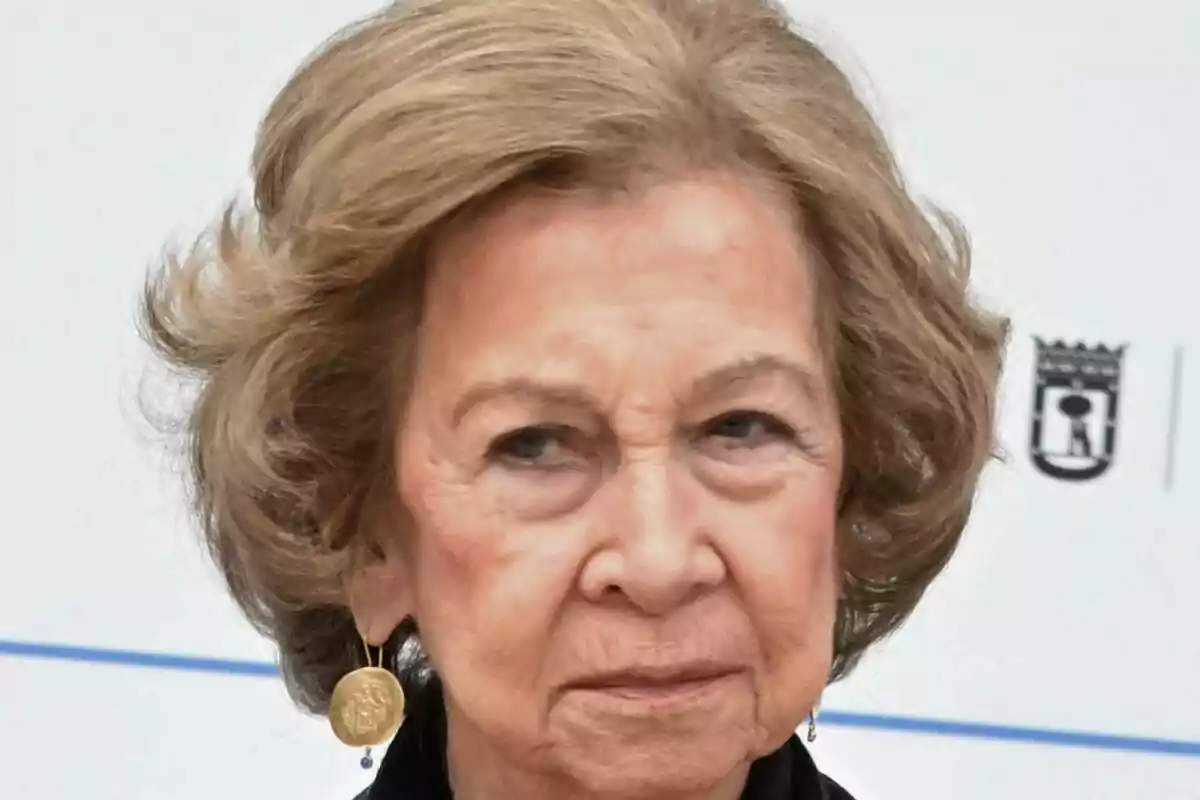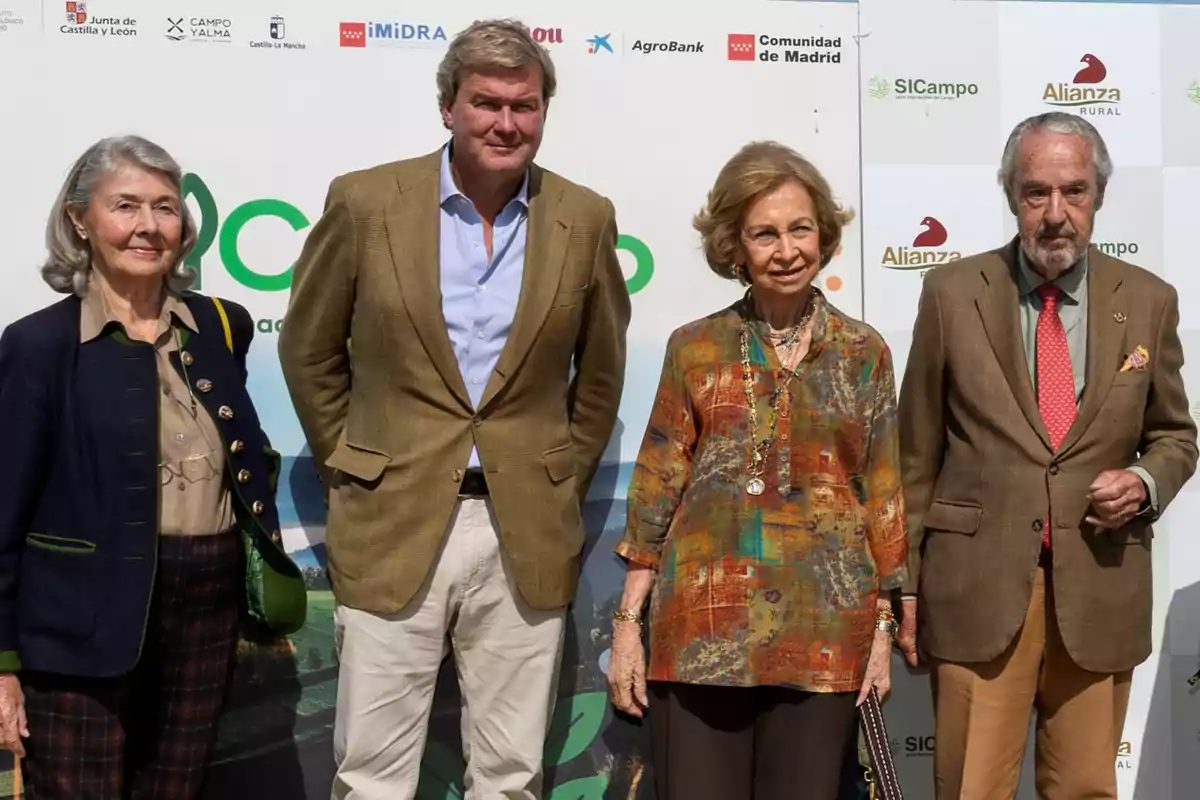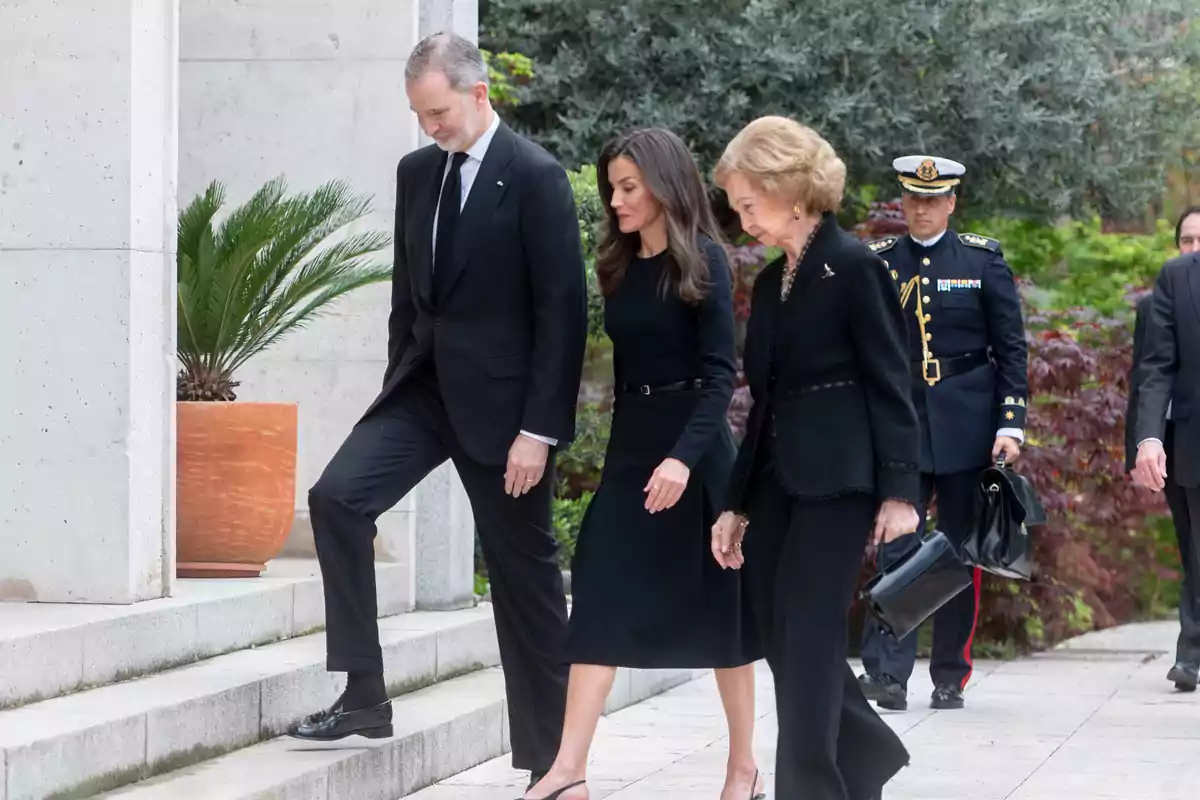Queen Sofía has taken a step forward by communicating to the Royal Family her desire to honor the memory of her chief of security. Manuel Barrós, the emerita's most trusted man, passed away as a result of ALS, a neurodegenerative disease. Since then, Sofía has brought visibility to this illness by promoting projects that help its research.
The latest thing she wants to carry out thanks to the Royal Family's approval is a new initiative to fight ALS. The "Manolo Barrós" project will be fully funded by the Queen Sofía Foundation, thus serving as a tribute to the emerita's chief of security.

Queen Sofía makes a request to the Royal Family
Queen Sofía, an emblematic figure of the Royal Family, has once again shown her sensitivity and social commitment. In a few days, she will close the 2nd International Congress on ALS Manolo Barrós Research. This event is named after the emerita's chief of security, who passed away just a year ago from the same disease.
Now, Queen Sofía has made a request to the Royal Family to continue honoring the figure of the man who was her trusted confidant. To this end, she has decided to fund an ambitious international medical research project on ALS. The project, named "Manolo Barrós," will be developed at the Queen Sofía Foundation Alzheimer Center, in collaboration with scientific institutions worldwide.

The aim of the study is to identify blood biomarkers that help diagnose ALS early, quickly, and with non-invasive methods. The Center for Research in Neurological Diseases (CIEN) and the universities of Bonn and Cologne are also participating, thus reinforcing the international character of the research.
Thanks to the Royal Family's approval, the Queen Sofía Foundation will allocate €150,000 for the development of this project. Its duration will extend until 2026, as planned, and it hopes to achieve satisfactory results that help thousands of patients.
Involvement in this initiative has become something personal for Queen Sofía. Felipe's mother has experienced neurodegenerative diseases up close and her commitment to research is unwavering.
Royal Family approves Queen Sofía's initiative
For years, Manuel Barrós was by Queen Sofía's side, accompanying her at official events and working as her chief of security with great discretion. The relationship between the two was one of deep trust, beyond protocol; they shared many experiences during their joint service in the Spanish Royal Household.
Barrós was head of the Royal Household Security Service from 1999 to 2013, a position he held with utmost dedication and commitment. After his retirement, he remained a beloved figure in the queen's circle, who never stopped showing him affection and personal closeness. Years later, his diagnosis of Amyotrophic Lateral Sclerosis was a hard blow for those who knew him.

Queen Sofía then decided that his legacy should go beyond remembrance, promoting a medical project that would bear his name and spirit. From that desire was born the International Congress on ALS Manolo Barrós Research, which Sofía will close this coming Thursday. The initiative that has the Royal Family's approval to take ALS research to other levels is also born from this.
This gesture shows how Sofía transforms personal pain into actions with social and scientific impact, giving meaning to a loss deeply felt by her. Barrós's family has expressed great gratitude to the emerita for making Manuel's name the banner of such a necessary cause.
Thus, the figure of Manuel Barrós will remain present in a field that needs commitment, research, and people willing to drive real change from the heart. The "Manolo Barrós" project will be more than research: it will be a shared fight for all patients and their families.

